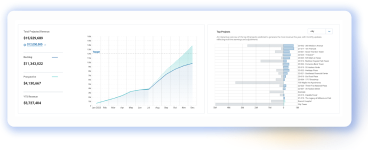Analytics dashboards continue to grow in popularity among contractors, but the discussion can omit an important consideration—metrics that are useful to one company can be meaningless to another.
That’s the subject of a two-page column by Bruce Orr, founder and CEO of ProNovos, in this month’s print edition of Construction Business Owner magazine.
In ‘Finding the Metrics that Matter,’ Orr notes that while certain financial yardsticks are universal, the relevance of other key performance indicators (KPIs) depends on factors such as how large the company is, what it builds, who its customers are and how long its projects take to complete. “Contractors need to focus on metrics that matter,” he writes.
In the column, Orr describes factors that can determine the relevance of KPIs in areas such as customers, projects and labor. He drills into some anecdotes drawn from the field relating to:
- ranking customers by profit margin;
- the role of project duration, size and complexity in determining whether a particular metric makes sense for your company.
- considerations related to AP and AR; and
- how unions can change the equation.
In the conclusion to the published in Construction Business Owner magazine piece, Orr underscores the need for contractors to continually ask whether they’re seeing the situation clearly.
“If it’s a 100-hour job, and the crew has already logged 50 hours, that may seem to suggest that the project is half done,” he writes, “but introduce production quantities and you may learn that only 25 cubic meters of concrete, out of a required 100, have actually been poured.”
Nearly any KPI can sound like it would add to your understanding, but by looking at the specifics at your own company or on a particular project, contractors can better determine which metrics will serve them best.
“Being selective with analytics saves you time and money,” Orr writes, “but just remember to be flexible, too: Your data needs will shift as your company evolves.”




